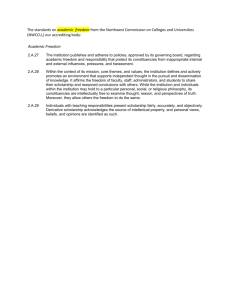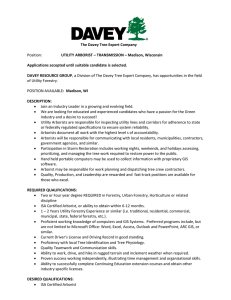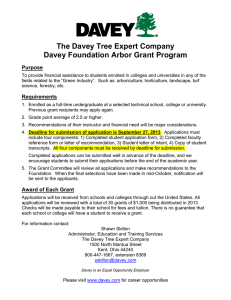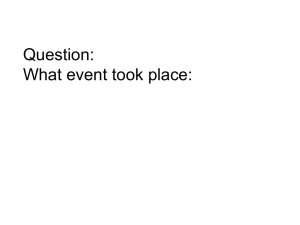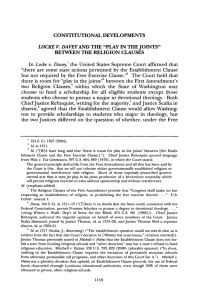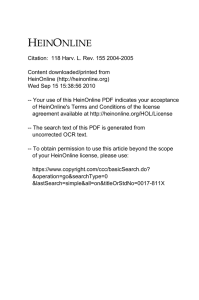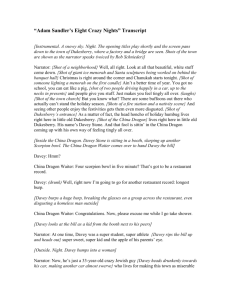SUPREME COURT OF THE UNITED STATES
advertisement
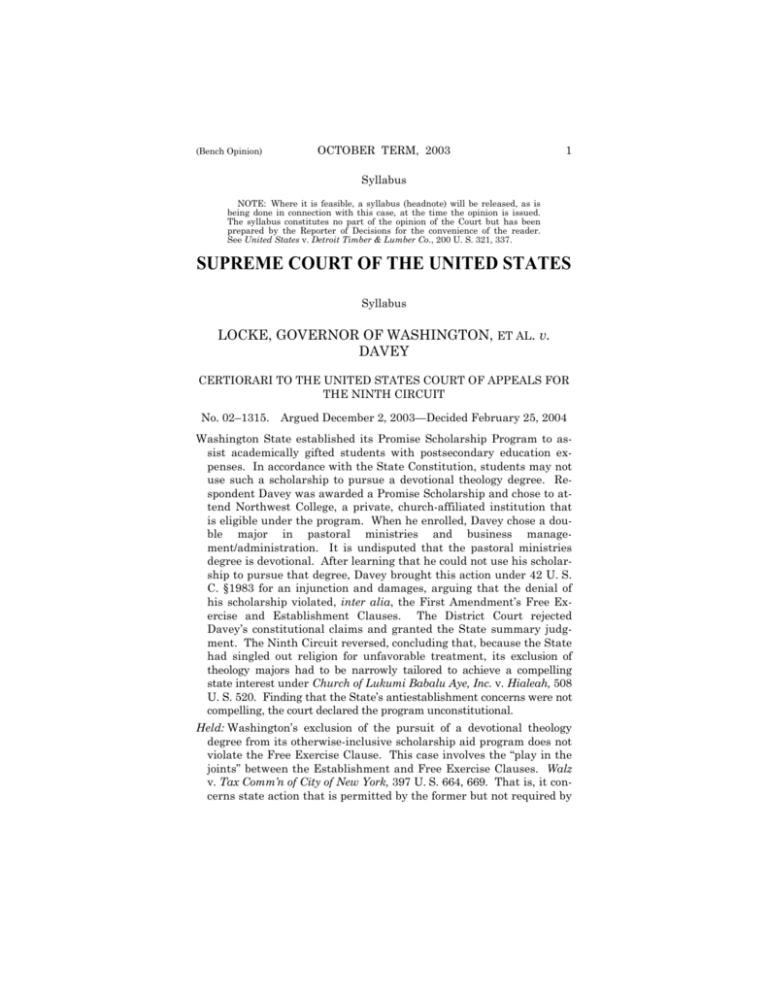
(Bench Opinion) OCTOBER TERM, 2003 1 Syllabus NOTE: Where it is feasible, a syllabus (headnote) will be released, as is being done in connection with this case, at the time the opinion is issued. The syllabus constitutes no part of the opinion of the Court but has been prepared by the Reporter of Decisions for the convenience of the reader. See United States v. Detroit Timber & Lumber Co., 200 U. S. 321, 337. SUPREME COURT OF THE UNITED STATES Syllabus LOCKE, GOVERNOR OF WASHINGTON, ET AL. v. DAVEY CERTIORARI TO THE UNITED STATES COURT OF APPEALS FOR THE NINTH CIRCUIT No. 02–1315. Argued December 2, 2003—Decided February 25, 2004 Washington State established its Promise Scholarship Program to assist academically gifted students with postsecondary education expenses. In accordance with the State Constitution, students may not use such a scholarship to pursue a devotional theology degree. Respondent Davey was awarded a Promise Scholarship and chose to attend Northwest College, a private, church-affiliated institution that is eligible under the program. When he enrolled, Davey chose a double major in pastoral ministries and business management/administration. It is undisputed that the pastoral ministries degree is devotional. After learning that he could not use his scholarship to pursue that degree, Davey brought this action under 42 U. S. C. §1983 for an injunction and damages, arguing that the denial of his scholarship violated, inter alia, the First Amendment’s Free Exercise and Establishment Clauses. The District Court rejected Davey’s constitutional claims and granted the State summary judgment. The Ninth Circuit reversed, concluding that, because the State had singled out religion for unfavorable treatment, its exclusion of theology majors had to be narrowly tailored to achieve a compelling state interest under Church of Lukumi Babalu Aye, Inc. v. Hialeah, 508 U. S. 520. Finding that the State’s antiestablishment concerns were not compelling, the court declared the program unconstitutional. Held: Washington’s exclusion of the pursuit of a devotional theology degree from its otherwise-inclusive scholarship aid program does not violate the Free Exercise Clause. This case involves the “play in the joints” between the Establishment and Free Exercise Clauses. Walz v. Tax Comm’n of City of New York, 397 U. S. 664, 669. That is, it concerns state action that is permitted by the former but not required by 2 LOCKE v. DAVEY Syllabus the latter. The Court rejects Davey’s contention that, under Lukumi, supra, the program is presumptively unconstitutional because it is not facially neutral with respect to religion. To accept this claim would extend the Lukumi line of cases well beyond not only their facts but their reasoning. Here, the State’s disfavor of religion (if it can be called that) is of a far milder kind than in Lukumi, where the ordinance criminalized the ritualistic animal sacrifices of the Santeria religion. Washington’s program imposes neither criminal nor civil sanctions on any type of religious service or rite. It neither denies to ministers the right to participate in community political affairs, see McDaniel v. Paty, 435 U. S. 618, nor requires students to choose between their religious beliefs and receiving a government benefit, see, e.g., Hobbie v. Unemployment Appeals Comm’n of Fla., 480 U. S. 136. The State has merely chosen not to fund a distinct category of instruction. Even though the differently worded Washington Constitution draws a more stringent line than does the Federal Constitution, the interest it seeks to further is scarcely novel. In fact, there are few areas in which a State’s antiestablishment interests come more into play. Since this country’s founding, there have been popular uprisings against procuring taxpayer funds to support church leaders, which was one of the hallmarks of an “established” religion. Most States that sought to avoid such an establishment around the time of the founding placed in their constitutions formal prohibitions against using tax funds to support the ministry. That early state constitutions saw no problem in explicitly excluding only the ministry from receiving state dollars reinforces the conclusion that religious instruction is of a different ilk from other professions. Moreover, the entirety of the Promise Scholarship Program goes a long way toward including religion in its benefits, since it permits students to attend pervasively religious schools so long as they are accredited, and students are still eligible to take devotional theology courses under the program’s current guidelines. Nothing in the Washington Constitution’s history or text or in the program’s operation suggests animus towards religion. Given the historic and substantial state interest at issue, it cannot be concluded that the denial of funding for vocational religious instruction alone is inherently constitutionally suspect. Without a presumption of unconstitutionality, Davey’s claim must fail. The State’s interest in not funding the pursuit of devotional degrees is substantial, and the exclusion of such funding places a relatively minor burden on Promise Scholars. If any room exists between the two Religion Clauses, it must be here. Pp. 4–12. 299 F. 3d 748, reversed. REHNQUIST, C. J., delivered the opinion of the Court, in which Cite as: 540 U. S. ____ (2004) 3 Syllabus STEVENS, O’CONNOR, KENNEDY, SOUTER, GINSBURG, and BREYER, JJ., joined. SCALIA, J., filed a dissenting opinion, in which THOMAS, J., joined. THOMAS, J., filed a dissenting opinion.








